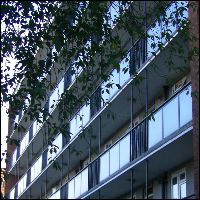 Here is a question to the blog clinic, which I am sure is being asked by many tenants, from Jayne (not her real name):
Here is a question to the blog clinic, which I am sure is being asked by many tenants, from Jayne (not her real name):
I took up occupation on 01.03.2011 and signed a 6 month lease agreement. I am still residing in the same property.
My landlord now wants to issue me with a new agreement and increase the rent by £120, can this be done?
Well Jayne, your landlord cannot force you to agree to a new rent and you can refuse to sign the new agreement if you want. However if you do this, you risk the landlord issuing you with a section 21 notice and then (if you refuse to vacate) bringing proceedings to evict you from the property.
It is unfair I know, but they do have that right. So long as the proper notice is given to you,and the proper procedure followed, a landlord can evict you for whatever reason he likes – and he does not have to tell you what it is. Legally, the reason will be that the proper notice has been served and he wants you to leave.
So basically if the landlord wants to raise the rent, you either call his bluff and hope he will let you stay at the original rate, or sign and pay.
Sorry!
With a shortage of rented property and tenants clamouring to rent, pushing rents ever higher, you will not be the only tenant who will experience this.
If you don’t want to risk losing the property you could try negotiating. Perhaps offer to meet them half way on the increase but ask for a longer term in return so you dfon’t have the same problem in 6 months time. If you’re a good tenant they may agree.
Unfortunately this is just one of the problems with short fixed term agreements. Lack of security is a huge problem for the private rented sector in this country and one of the reasons why renting will never become as popular as it is on the continent. It will only be solved by companies investing for the long term in the PRS and offering longer term ASTs (or even Assured Tenancies) with capped rent reviews.
How true that is Jamie. Thanks for your comment.
Yes definitely try to negotiate Jayne, if you can.
I agree with you Jamie and speaking as a tenant I hate ASTs with a vengeance as I never feel I can put down roots, relax and call the place my home. I think most tenants feel the same way, but part of the problem is that many buy to let mortgage deals dont allow the landlord to set up anything else.
This obsession with ASTs is the reason why renting has such a bad reputation, unlike much of Europe.
Retaliatory eviction is part of the landscape of the tenant, although even decent landlords will insist that they need them to protect themselves against nightmare tenants.
I have some sympathy with landlords in this respect but beneath that I think that ASTs damage society and communities as the destroy any sense of home or stability
I am suprised Tessa didn’t mention section 13 of the 1988 Housing Act which gives landlords the ability to impose a rent increase on tenants with a section 5 periodic tenancy. A section 13 notice does give the tenant the option to refer the rent to a rent assessment committee – but in these days of rising rents the committee is likely to rubber-stamp all but the most outlandish increases.
David I havent done rent assesssment committee work for a while now but I recall, back when I did, a statistic that 74% of tenants appeals against unfair increases were turned down.
And hanging over everything from reporting a repair to complaining about the landlord letting themselves in when the tenant is out is nearly always met with retaliatory eviction.
Landlords always claim that the law is biased towards tenants rights and tenants make the same claim back. As the person stuck in the middle of these 2 positions I can honestly say I think it depends on the context. A landlord trying to evict a nightmare tenant, especially when Shelter are on the case can create the impression that the law backs the tenant, and it must be really terrible for landlords in this situation but lanldords always have the ultimate sanction through ASTs, the right to take a person’s home away without any defence to proceedings.
In the social housing world this would most likely be considered a breach of Article 8 of the European Convention on Human Rights – prohibition on a public body interefering with someone’s home – but private landlords arent ‘Public bodies’, so human rights dont apply.
Hi Jayne (Not her real name)
With the current rental climate, it appears that landlords are increasing their rents to “make hay whilst the sun shines”. As landlords ourselves we have no problems with our tenants for one very good reason. WE ARE FAIR!
Whilst the landlord does not have to give a reason for the increase, I would question the motive. We encourage all our landlords to be fair and that way they will keep their tenants for longer.
Would a rent increase in line with inflation not be preferable? Maybe you could negotiate on that basis.
Food for thought and good luck :)
Regards
Mark